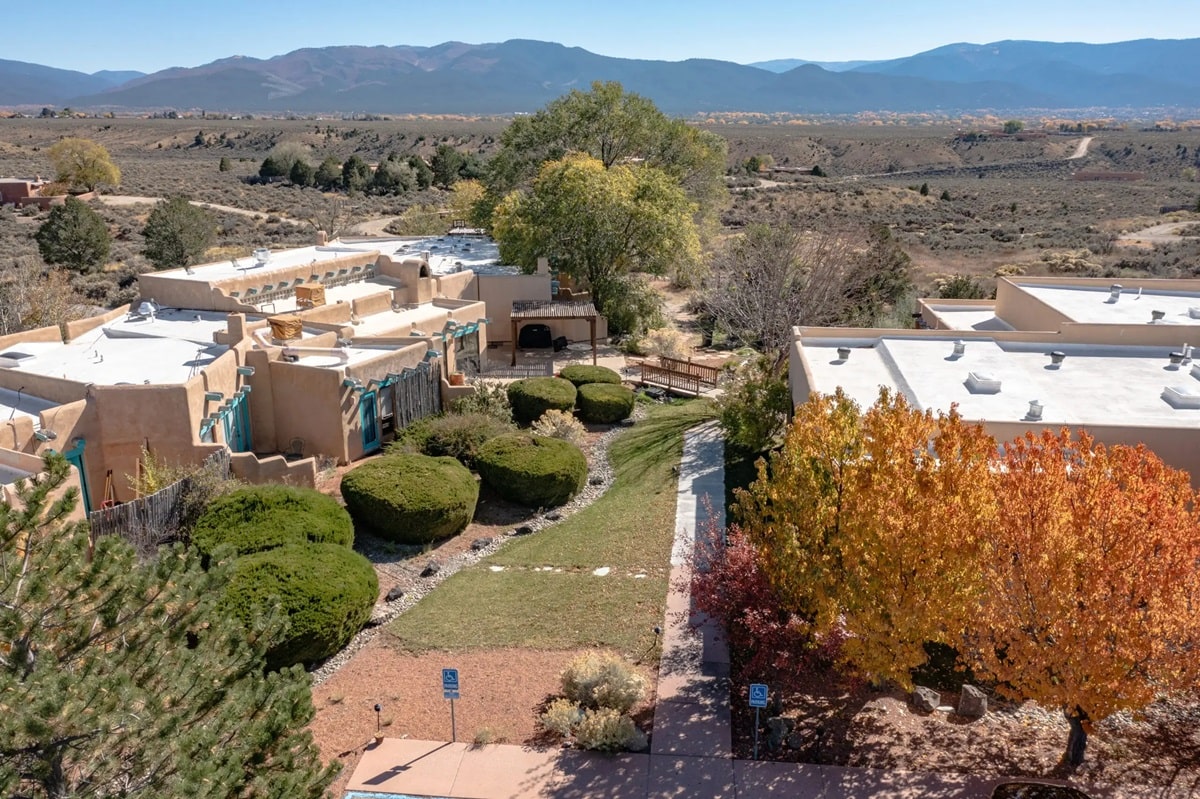Types of Drug Rehab Aftercare Programs
A Journey Beyond Rehab at Vista Taos Renewal Center
Addiction recovery is a challenging but incredibly rewarding journey. Traditional treatment programs offer valuable support, but true healing requires addressing the root causes of addiction.
Vista Taos Renewal Center is dedicated to providing holistic healing approaches for people battling addiction. Nestled in the serene environment of New Mexico, we emphasize treating the whole person, not just the addiction.
This comprehensive approach integrates physical, emotional, and spiritual therapies to foster deep, lasting recovery.

The Importance of Drug Rehab Aftercare
- Significantly reduces the risk of relapse
- Reinforces healthy habits
- Maintains the connection to supportive networks
Understanding Drug Rehab Aftercare
How Drug Rehab Aftercare fits into the Continuum of Treatment
- Detoxification: This initial phase involves safely removing drugs from the body and managing withdrawal symptoms.
- Inpatient/outpatient rehab: Intensive therapy and support in a structured environment help address underlying issues and develop coping mechanisms.
- Drug rehab aftercare: Ongoing support can strengthen recovery skills and help people navigate triggers and challenges in the real world.
Benefits of Drug Rehab Aftercare
Strengthens Emotional Resilience
Maintaining Motivation
Continuum of Care at Vista Taos Renewal Center
Individualized Assessment
- Evaluates their progress
- Identifies ongoing needs
- Explores potential triggers or challenges
Therapist Collaboration
Multidisciplinary Team Involvement
- Therapists
- Counselors
- Recovery advocates
- Medical experts
Family Integration
We recognize the importance of family support in recovery. Our aftercare programs can include family therapy sessions and educational workshops. The aim is to help loved ones understand addiction and provide a supportive environment for the client.
Goals and Components of Vista Taos Renewal Center’s Drug Rehab Aftercare Program
- Preventing relapse
- Maintaining motivation
- Developing life skills
Components of Drug Rehab Aftercare at Vista Taos Renewal Center
- Individualized relapse prevention planning: Together, clients and staff will create a personalized plan to identify triggers, develop coping skills, and establish healthy routines.
- Continuing therapy: Regular therapy sessions provide a safe space to process challenges, address underlying issues, and maintain motivation.
- Support groups: Connecting with others in recovery fosters a sense of belonging. This also allows clients to share experiences and learn from each other. Our alumni hold support group meetings twice a week.
- Alumni network: A strong alumni network provides ongoing support. It also helps build connections with fellow alumni who understand the unique challenges of recovery.
- Holistic wellness practices: The program may incorporate activities like yoga, meditation, or mindfulness exercises to promote well-being.
Treatment Programs Available at Vista Taos Renewal Center
Outpatient Programs
- Individual therapy
- Group sessions
- Workshops
Sober Living Arrangements
Community-Based Resources
Relapse Prevention Strategies
Empowerment and Confidence
- Fostering a sense of control
- Building confidence
- Reducing feelings of vulnerability that can contribute to relapse
Increased Self-Awareness
Strategies and Coping Skills
Self-Reflection
- People
- Places
- Situations
- Emotions that can increase cravings
Healthy Coping Mechanisms
- Mindfulness exercises
- Relaxation techniques (deep breathing, progressive muscle relaxation)
- Distraction techniques (exercise, listening to music, spending time in nature)
Communication Skills
- Express their needs effectively
- Set boundaries
- Avoid situations that might lead to relapse
Relapse Rehearsal
Role of Ongoing Therapy and Support in Managing Triggers
- Address the underlying issues
- Learn from the experience
- Get back on track with their recovery journey
Importance of Social Support in Drug Rehab Aftercare
Reduced Relapse Risk
Improved Emotional Well-being
Building Support Networks
- Family therapy
- Social activities
- Life skills workshops
- Support groups like Alcoholics Anonymous (AA) or Narcotics Anonymous (NA)
Tips for Strengthening the Support Network
- It’s important to establish healthy boundaries with people who might be triggers or negative influences.
- Don’t be afraid to reach out for support when needed.
- Attend support group meetings, connect with therapists, and talk to trusted friends or family members.
- Look for opportunities to connect with others in recovery through activities, workshops, or online support communities.
The Emphasis on Ongoing Education and Skill-Building in Drug Rehab Aftercare
Developing New Tools
- Manage finances
- Get a stable job
- Handle stress in a healthy way
Increased Confidence
Fostering Independence
Discovering New Passions
- New hobbies
- Creative pursuits
- Vocational training
Ongoing Assessment and Monitoring in Drug Rehab Aftercare
Regular Check-Ins
- Progress
- Challenges
- Any changes in their personal circumstances
Self-Assessment Tools
Family and Support Network Feedback
Adjusting Aftercare Plans for Continued Success
- Modifying therapy approaches: Therapists may adjust therapeutic approaches based on the client’s progress. For example, if a client is struggling with specific triggers, their therapy might focus on developing more effective coping mechanisms.
- Adding or removing support services: As the client progresses, additional support services, such as vocational training or financial management workshops, might be incorporated into the plan. Conversely, less intensive support services might be reduced as the client develops greater independence.
- Goal setting and adjustment: Goals set during the initial aftercare planning stages may need to be adjusted. As the client’s needs evolve, this represents the progress they have made.
Importance of Communication and Collaboration in Drug Rehab Aftercare
- Empowered decision-making: When clients actively take part in discussions, they feel more in control of their recovery. This fosters a sense of empowerment and increases the likelihood of adhering to the plan.
- Early identification of challenges: Open communication allows clients to voice concerns and challenges they might be facing before they escalate into a relapse risk. Early intervention is crucial for maintaining sobriety.
- Building a supportive relationship: A trusting relationship between the client and the aftercare provider allows for open and honest communication. Clients feel comfortable sharing their struggles and successes. This allows the provider to offer tailored support and encouragement.
The Vista Taos Renewal Center Alumni Network: A Community Beyond Treatment
Twice-Weekly Support Groups
- Share experiences
- Celebrate successes
- Navigate challenges together
Multi-Annual Events
- Reconnect with fellow alumni
- Build new friendships
- Stay engaged with the recovery community
Annual Alumni Reunions
Supporting Others in Recovery
- Sharing their stories
- Mentoring others who are new to recovery
- Advocate for policies and resources that support recovery within the community





